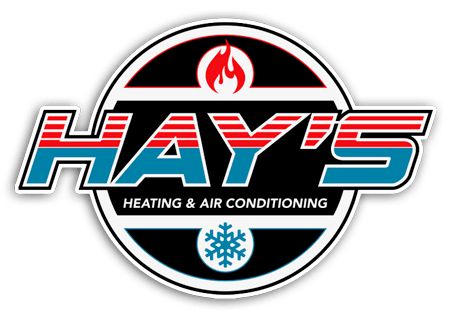Your furnace and air conditioner are the unsung heroes of your home. They work tirelessly to keep you warm during freezing winters and cool during scorching summers. But like all machines, they have limits. Knowing when to repair versus when to replace your HVAC system can save you money, reduce stress, and keep your home comfortable all year. Let’s break it down in a simple and easy-to-follow way.
How Old Is Your System?
Age is one of the first things to check. Most furnaces last around 15 to 20 years, while air conditioners usually last 10 to 15 years. If your system is getting close to these numbers, you might start noticing reduced efficiency, higher energy bills, or frequent breakdowns. While some older units can be repaired, investing in a new system often makes more sense. It can save you from constant service calls and unexpected problems.
Even with regular maintenance, age takes a toll. This is where commercial HVAC contractors can be a big help. They can evaluate your system’s efficiency, check its lifespan, and guide you on whether repairs are worthwhile or if replacement is a better long-term decision. Getting a professional opinion ensures you are making a smart choice rather than guessing and hoping your furnace or AC will make it through another season.
Are Your Energy Bills Going Up?
Sudden spikes in your energy bills are often a sign that something is wrong. If your heating or cooling costs have increased without using more energy, your system might be struggling to work efficiently. Leaky ducts, worn-out parts, or an aging unit can make your HVAC system work harder than it should. This wastes energy and raises your monthly bills.
Comparing your bills from the same month year over year can help. If you notice a big jump, it is worth calling a technician. Sometimes a small repair can fix the problem, but other times, replacement is the only way to prevent ongoing high costs.
Strange Noises or Smells
Your HVAC system can communicate with you through noises or unusual smells. Clanging, rattling, or squealing are not normal. They may indicate loose or worn parts, failing motors, or more serious internal problems.
Foul odors should never be ignored. Burning smells, musty scents, or gas-like odors can mean electrical issues, mold growth, or gas leaks. These are serious safety concerns. If you notice any of these signs, schedule an inspection immediately. A professional can tell you whether a repair is enough or if a replacement is safer and more cost-effective.
Are Repairs Becoming Frequent and Costly?
Repair costs can add up, especially if your system is older. A simple rule is the “five thousand dollar rule”: multiply the system’s age by the repair cost. If the total is more than five thousand dollars, replacement is often the better financial choice.
For example, if your 12-year-old furnace needs a six hundred dollar repair, the total is 12 times 600, which equals 7,200 dollars. In this case, a new system could save you money and prevent future problems. Frequent repairs are also inconvenient. Constantly calling for service not only costs money but also disrupts your comfort. This can be frustrating for busy families or anyone with a tight schedule.
Inconsistent Heating or Cooling
Uneven temperatures are another sign you may need a replacement. Are some rooms too hot while others are too cold? Does your furnace cycle on and off too often, or your AC blow lukewarm air? These issues can result from worn-out components, outdated technology, or a system that is too small for your home.
If balancing the system requires repeated service calls, it might be more efficient to upgrade to a new unit. Modern systems offer advanced features like variable speed motors, smart thermostats, and better humidity control. They are more reliable and improve comfort while lowering energy use.
Safety Concerns
Furnaces and AC units are powerful machines, so safety is very important. Carbon monoxide leaks from a furnace, refrigerant leaks from an AC, or electrical issues are serious risks. If a technician finds a safety problem, replacement is often the safest option. A new system provides peace of mind and ensures your home stays safe.
Upgrading Technology
Even if your system is not failing, upgrading to a newer model has benefits. Energy-efficient units use less electricity, reducing bills and your environmental footprint. Modern HVAC systems run quieter, improve air quality, and offer features like zoned heating and cooling. If your system is outdated, replacement can make more sense than spending on repairs that do not bring these benefits.
Considering the Costs
Cost is always a factor. Repairs are usually cheaper upfront, but repeated expenses on an older unit can add up quickly. Replacement may seem expensive, but it often pays off through improved efficiency, fewer repair bills, and enhanced comfort. When unsure, ask a licensed professional to perform a cost analysis.
And remember to hire professional heating installation service if you replace your system. Certified technicians ensure the job is done safely and efficiently, so your new unit performs at its best from day one.
Conclusion
Knowing when to repair or replace your furnace and AC doesn’t have to be stressful. By keeping an eye on system age, energy bills, unusual sounds, and repair frequency, and by consulting with professionals, you can make smart decisions that keep your home comfortable and safe all year.
FAQs
Q1: How often should I have my furnace and air conditioning inspected?
A: It is recommended that a professional inspection take place at least once each year. Schedule your furnace inspection before winter and your air conditioning inspection before summer. Ongoing maintenance will help lengthen the life of your system and can help prevent unforeseen breakdowns.
Q2: Can I do my own repairs for my HVAC system?
A: Minor maintenance, such as changing the filter, you can do yourself, but any major repairs, always go through licensed professionals for safety and productivity.
Q3: How long does a furnace/AC install take?
A: For the most part, residential installs are typically done in 1-2 days. More complicated installs or older homes may take longer if there is additional ductwork or electrical.
Q4: What are the signs that my HVAC system is unsafe?
A: Signs of an unsuitable HVAC system may include odd smells (such as burning or gas), strange noises, more frequent cycling, or if your detector of carbon monoxide is activated, then prompt inspection of the HVAC by a certified technician is recommended to ensure safety.
Q5: Are HVAC systems that are energy efficient worth the cost?
A: Yes! Energy-efficient, modern HVAC systems will save you money monthly, provide for a more comfortable home, and many may provide for rebates or tax incentives. Over time, the savings from energy-efficient HVAC equipment will exceed the cost of the equipment when compared to traditional style.








